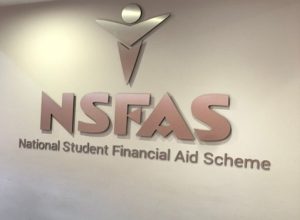
Student Loans in South Africa: What You Need to Know
Getting a student loan in South Africa can open doors to opportunities that might otherwise feel out of reach. Whether you’re just starting your academic journey or trying to figure out how to fund your final year, understanding how student loans work is a crucial step.
In South Africa, there are several options—from government-funded programs to private lenders. Knowing the ins and outs of each can help you make the right choice for your future. Let’s break it down together.
Check Out What Science Says About Watching Too Much TV: The Real Impact on Your Health
What We’ll Cover:
The types of student loans available in South Africa
How to qualify and apply
Repayment options and interest rates
Smart tips to stay on top of your debt
Types of Student Loans in South Africa
1. Government Loans – NSFAS
The National Student Financial Aid Scheme (NSFAS) is aimed at helping students from low-income households. It covers more than just tuition—it can also include accommodation and living expenses. One big advantage? If you perform well in your studies, a portion of your loan could be turned into a bursary. That means you won’t need to pay it all back.
2. Bank Loans
South Africa’s big banks—like Standard Bank, FNB, ABSA, and Nedbank—offer student loans with varying terms. These usually require a guarantor (typically a parent or guardian), and the money often goes directly to your institution to cover tuition. Some banks also give you funds for textbooks, accommodation, or other study-related expenses.
3. Private Financial Institutions
Companies like Fundi offer loans designed specifically for students, covering everything from tuition and textbooks to transport and rent. These lenders often give you more flexible repayment options than traditional banks.
4. Employer Assistance
Some employers offer student loan assistance as part of their employee benefits. If you’re working full-time or part-time, it’s worth asking your HR department if this is available to you or your dependents.
Also Check out How to Transform Your WordPress Site into a Mobile App
How to Apply for a Student Loan
Applying for a loan doesn’t have to be overwhelming. Here’s a simple roadmap:
1. Explore Your Options: Compare interest rates, repayment terms, and benefits from different institutions.
2. Check Eligibility: Make sure you meet academic and financial requirements.
3. Get Your Docs Ready: Typically, you’ll need an ID, proof of registration, income documents (yours or your guarantor’s), and a fee breakdown from your university.
4. Apply Online or In-Person: Most banks and institutions offer online applications, but some still require in-person verification.
5. Wait for Approval: If approved, the funds usually go straight to your school, with any additional funds transferred to your account.
Loan Repayment & Interest Rates
When do you start repaying?
NSFAS: You’ll start repaying once you’re earning above a certain salary threshold.
Bank Loans: Some banks require you to pay interest while studying, with full repayment starting after you graduate.
Private Loans: These vary, but many offer a short grace period before repayments begin.
Interest rates: Fixed vs. Variable
A fixed rate stays the same for the life of the loan.
A variable rate changes based on market conditions (like the prime lending rate).
NSFAS and other government loans usually have lower interest rates compared to private lenders.
Check Even More How to Share Your Computer Screen with Others
Smart Tips for Managing Student Loan Debt
Only borrow what you truly need—don’t take more than necessary.
Understand the fine print—know exactly what you’re signing up for.
Start paying interest early if you can—this can save you a lot down the road.
Work part-time if possible—even a little income can help with expenses.
Have a repayment plan—start budgeting early so you’re prepared when it’s time to pay back.
Final Thoughts: Make It an Investment, Not a Burden
Student loans can be a powerful tool to help you achieve your dreams. But they come with responsibility. Whether you’re going with NSFAS, a bank, or a private lender, the key is to borrow wisely and plan ahead. With a little research and smart money habits, your education can be one of the best investments you’ll ever make.




